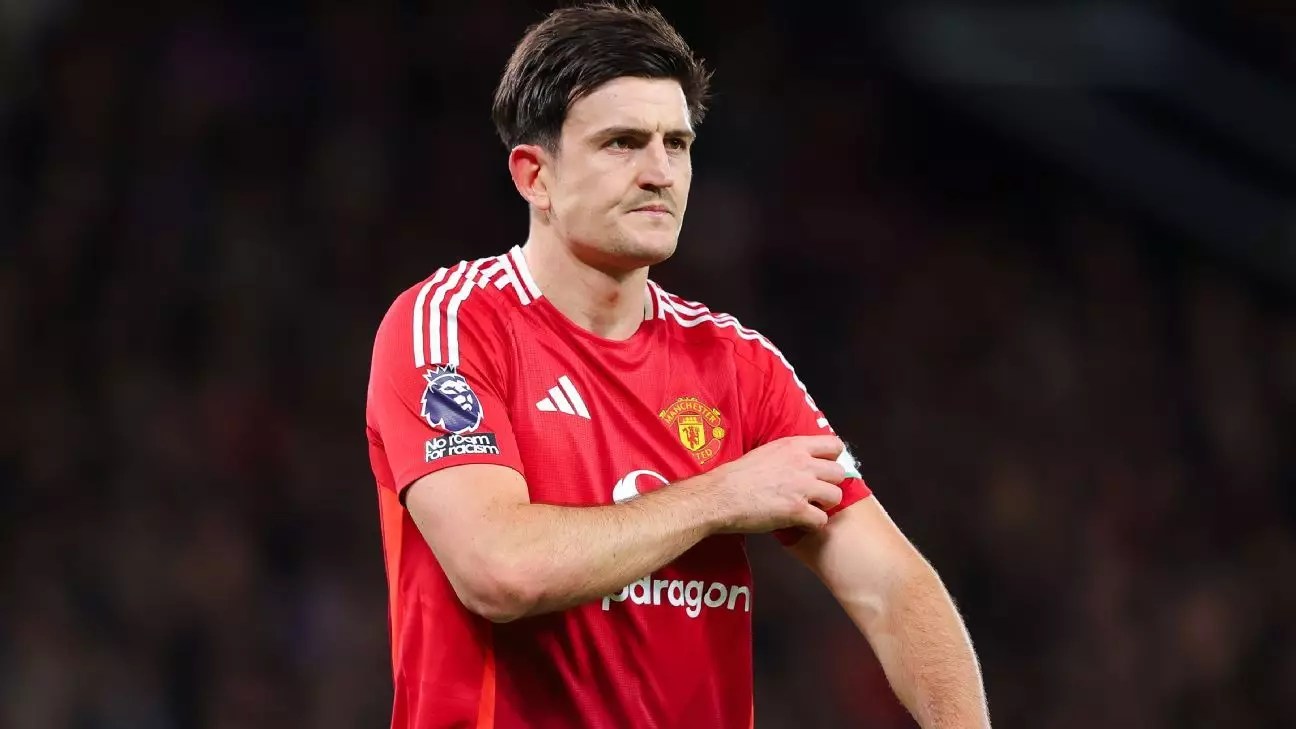In a candid acknowledgment of his squad’s shortcomings, Manchester United’s manager, Ruben Amorim, has highlighted a critical deficiency within the team: a lack of strong leadership. Ahead of a significant match against their arch-rivals Liverpool, Amorim’s statements reveal deeper issues at the club, illuminating how pivotal leadership has become in moments of adversity. With four consecutive defeats weighing heavily on the team’s morale, the Portuguese coach’s call for improved leadership symbolizes a broader need for institutional resilience in a club facing both internal and external challenges.
One notable decision emerging from Amorim’s press conference was the extension of Harry Maguire’s contract until June 2026. Described as a necessary measure, this decision raises questions about the future direction of the squad. While extending the deal may serve to stabilize the club’s defensive lineup, it simultaneously signals uncertainty about the players who can rise to meet leadership demands. Amorim explicitly stated that he expects Maguire to enhance his on-pitch performance and grow into a more commanding leader—an expectation that might not align with public sentiment about the defender’s capabilities.
The struggle of Maguire to solidify his position as a leader mirrors the challenges faced by United as a whole. Historically, the club has been synonymous with formidable leaders, yet the current squad’s static performances highlight a stark contrast. If Maguire is to fulfill the role as The Man, the stakes have never been higher; his ability to galvanize teammates could be the crucial ingredient missing from the recipe for success.
The Liverpool Challenge: Contextual Inequalities
Heading into the clash with Liverpool, Amorim’s demeanor hinted at an understanding of the magnitude of the upcoming challenge. The stark discrepancy in league standings—a situation where Liverpool boasts the top position, while United languishes in 14th—cannot be overlooked. Amorim’s comments about Liverpool having a “strong base for long years” underline the historical context of this rivalry; it is one defined by contrasting trajectories. For United, the current context magnifies pressure, especially considering the team’s failure to secure a win at Anfield since 2016.
The upcoming match presents itself as a litmus test for both players and coaching staff. Amorim, aware of his team’s struggles, has focused on performance improvement rather than outcome fixation. With two consecutive training days prior to the match, there is a glimmer of hope that increased preparation might aid in shifting the team’s fortunes. However, the psychological toll of poor results is not easily absorbed, and whether this purported preparation can translate into tangible success remains an open question.
Player Sentiments and Squad Morale
Adding another layer to the strategic narrative, Amorim addressed the situation revolving around Joshua Zirkzee, who faced public disapproval following an early substitution during the defeat against Newcastle. Zirkzee’s emotional response, retreating down the tunnel only to reappear on the bench, illustrates the fragile nature of player morale in an environment clouded by heavy expectations. Amorim’s approach—offering solidarity and emphasizing shared struggles—highlights a broader philosophy: unity in adversity can foster an environment conducive to growth.
This situation reflects a broader theme within football: the fine balance between nurturing talent and demanding accountability. The emotional outpour of players, especially in high-stakes environments, underscores the human aspect of the sport that often escapes analytical review. Support from coaching staff is critical, especially in times of public scrutiny, as players require assurance they can rebound from setbacks.
As Manchester United steers through a challenging season, the path forward hinges on cultivating a solidified sense of leadership within the squad. Amorim’s recognition of the leadership gap is imperative; it underscores how the club must evolve to reestablish its competitive identity. The upcoming match against Liverpool will be emblematic of this rebuilding effort, as the players must not only confront their external adversaries but also engage with their internal struggles.
Ultimately, for United to escape this spiral of despair, investment in both player development and leadership cultivation will be non-negotiable. The view offered in Amorim’s press statements highlights the interconnectedness of performance, strategy, and psychological resilience, galvanizing the narrative around one of Europe’s storied clubs poised for evolution, yet wrestling with the shadows of its recent past.


Leave a Reply